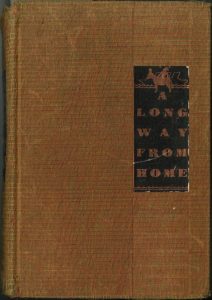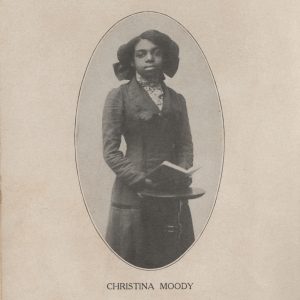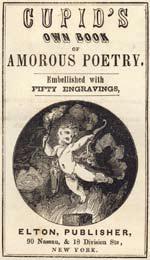
February has one extra day this year, and that gives us the chance to do one last post for Black History Month. While Christina Moody’s Tiny Spark is a favorite recent purchase, this inscribed copy of Claude McKay’s A Long Way From Home is a treasured gift to the Rare Book Collection from Mr. Theodore Jones.
The volume is the autobiography of the Jamaica-born writer McKay in the first edition, published in New York in 1937. Its original cloth cover with foil label is quite worn, but open up, and there’s a surprise, a wonderful page of inscriptions, one from the author to Naomi Davis, the alias of Frances Daniels.

Daniels, Mr. Jones’s mother, was a young African-American or – shall we say – “Aframerican” woman, involved in the literary and political world of 1930s Harlem. Mr. Jones tells us that she was associated with the People’s Bookstore and the Leftist periodical The Liberator, traveling on assignment to the Soviet Union.
Unknown is the identity of Henry, who wrote the first inscription on the book’s front free endpaper, from March 3, 1937: “To Frances, This taken of admiration and affection.” Author McKay adds the second and final inscription, addressing Ms. Daniels by her other name: “And now from the Author for this deliciously sweet Aframerican friend Naomi Davis by Claude McKay.”
McKay employed the adjective Aframerican, now fallen into disuse, extensively in his writings and in the title of his 1940s novel, Harlem Glory: A Fragment of Aframerican Life, published posthumously in 1990. The elision in the word perhaps pleased the ear of the accomplished poet McKay.
The RBC copy of A Long Way From Home certainly proves that inscribed books have more than sentimental value. Its front endpaper transports us to a particular historic and linguistic moment at the end of the Harlem Renaissance, as only material culture can. Here’s to the association copy as documentary evidence for Black History.



